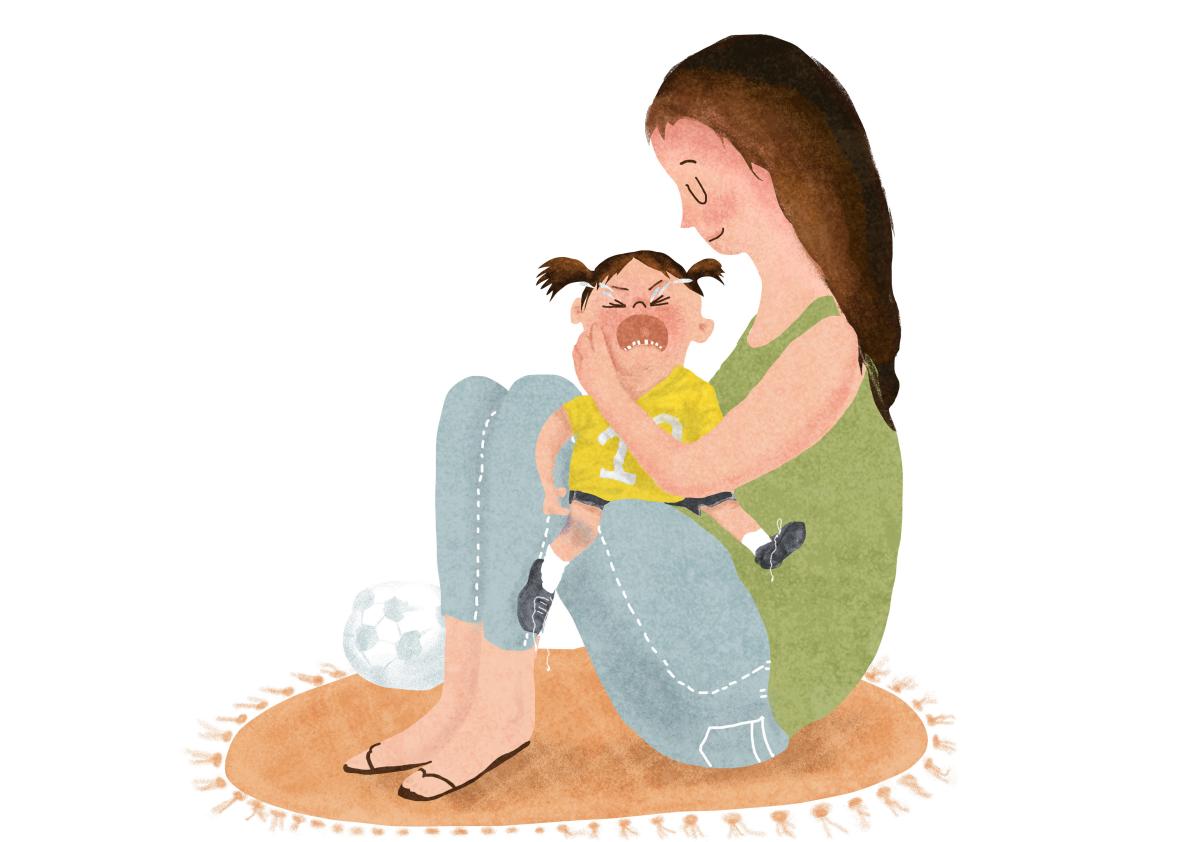Mouth and soft tissue injuries
Treating mouth injuries at home
Mouth injuries in children usually look worse than they really are. There are so many blood vessels in the areas near the head and neck, that even a tiny cut on your little one’s lip or tongue can
cause a lot of bleeding. This can even make it difficult for you to figure out exactly where all that blood is coming from.
The number one rule is to stay calm – chances are you’re dealing with a minor injury. The calmer you are, the faster your children will calm down.

We aim to detect and correct potential pediatric oral problems early so your child reach their full genetic potential. Our early intervention approach yields positive results, including long-lasting oral health, good dental hygiene habits, and a lower lifetime cost to patients (and their parents) by preventing more serious future problems.
With these steps you will be able to treat and heal the mouth injury yourself:
If the injury is on the outer lip or tongue, apply gentle pressure to the area with a piece of gauze or a clean cloth for as long as possible. (Run it under cool water first if you can)
If the inner lip is bleeding (upper or lower), gently press the part of that lip against your child’s teeth (or gums) for as long as you can (preferably 10 min). Avoid pulling the lip after that to check out the damage — that will start the bleeding again.
If there were ever a time to put on their favorite show on Netflix or pull out your phone as a distraction, this would be it. The longer your child sits (relatively) still for treatment, the sooner the bleeding will stop.
To numb the pain and reduce the swelling, apply an ice pack (or a bag of frozen veggies) to the area. If your child’s old enough to handle one, sucking on a Popsicle may also soothe a minor mouth injury.
Most mouth injuries don’t keep a child down for long, but if your little one seems to be in a lot of discomfort, a dose of ibuprofen (if he’s over age six months) should ease the pain. We also recommend Canker Rid as a great solution to treat canker sores.
While the injury is healing, keep your childs diet on the bland side (anything acidic — like orange juice — or salty may sting). Popsicles are great as a soothing treat. Also, rinsing with warm water after meals, will keep food from accumulating in a mouth cut.
Minor mouth injuries in children usually heal in three to four days.
When to call the doctor about a mouth injury
You can usually treat most mouth injuries in children at home. But be sure to call the doctor under any of these circumstances:
- If there’s heavy bleeding that doesn’t stop after ten minutes of direct pressure — or you were unable to keep direct pressure on your squirmy child and he’s still bleeding profusely.
- There is a deep or gaping cut, longer than a half inch.
- You see embedded debris or dirt in the wound.
- There’s a puncture wound to the roof of the mouth, back of the throat, or tonsils, which can injure deeper tissues in the head or neck.
- The wound was caused by a dirty or rusty object (especially if you’re unsure whether your child is up-to-date on the tetanus vaccine).
- The wound was caused by an animal or human bite.
- You suspect any bone injury (for example, your child is unable to move his jaw or their cheekbone is swollen)
- Your child’s tooth has been broken or knocked out.
- You see signs of infection in the first few days after the injury. Redness, increased swelling, pain, or unexplained fever are all indicators.



